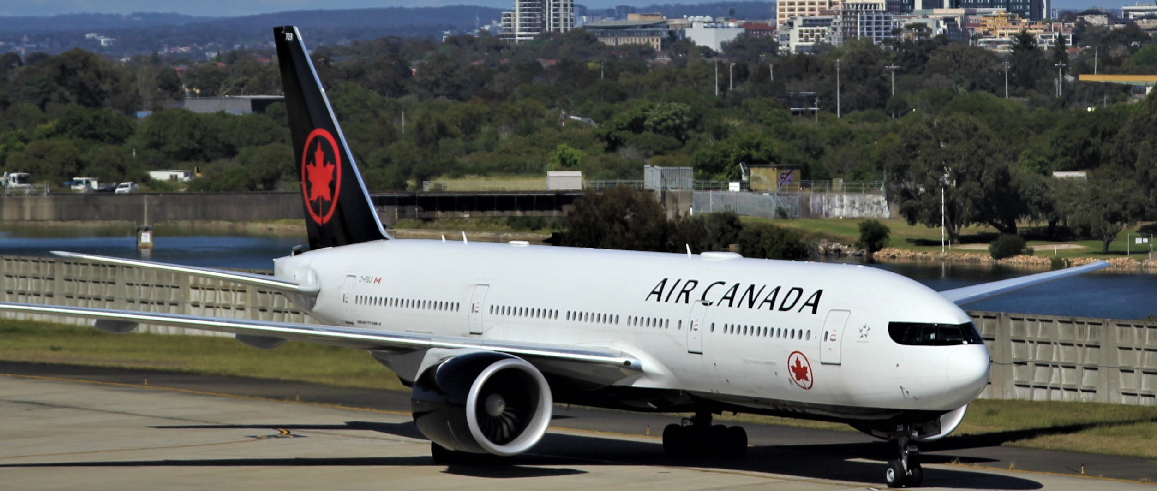Canada Temporary Resident Permit
If you’re inadmissible in Canada for criminal, health, financial, or any other reason, you may be able to move to the country with a Temporary Resident Permit (TRP).
Contact us at 0333 305 9375 for further details about the Canada Temporary Resident Permit, your eligibility, and other related information. Our professional immigration lawyers are ready to help you in person or via phone.
Read our 1001 reviews
Request a call back from our immigration experts
Benefits of Choosing IAS‘ Canada Immigration Lawyers
When it comes to obtaining a Canada visa or permit, IAS Canada immigration lawyers are well-equipped to help you.
With IAS’ track record of successfully helping clients visit or immigrate to Canada successfully, we can help you achieve your goal.
Our dedicated immigration lawyers provide our services through a comprehensive and personalised approach. With IAS, you enjoy:

Compassionate support from an experienced immigration lawyer dedicated to your success



Support in gathering supporting documents and completing a high-quality application.



Confidence that your case is being handled by an experienced team.



In-house document checks done by lawyers who are well-versed in immigration matters.
Services we Provide
What Is a Temporary Resident Permit?
A temporary resident permit to Canada is a document that allows you to enter the country and stay temporarily.
This document is issued by Citizenship and Immigration Canada when you have been declared inadmissible or failed to meet the requirements of the Immigration and Refugee Protection Act or Regulations.
You can become inadmissible to Canada due to past criminal records, security reasons, financial reasons, health issues, misrepresentation in your past immigration application, or inadmissible family members.
Therefore, you must have a valid reason to move to Canada to be eligible. Also, you must prove that the need for your visit to Canada exceeds the safety and health risks to Canadian society.
For example, an immigration officer can grant you a TRP if your trip is work-related and your presence in the country benefits Canada and its citizens.
Hence, Canadian Border Service officers will decide if or not to approve your TRP based on their risks and benefits analysis. And if approved, you must leave upon the expiry of your temporary residence.
What Can Cause My Inadmissible to Canada?
There are various causes of your inadmissibility to Canada, including the following:
1. Criminal Records
You may be barred from travelling to Canada on criminal grounds. That prevents you from entering the country as a worker, student, or visitor. Inadmissibility also denies you the chance to obtain permanent residence or maintain your PR status.
There are various forms of crimes that lead to your inadmissibility, but the major ones include the following:
- Operating under the influence (OUI)
- Operating while intoxicated (OWI)
- Operating a vehicle impaired (OVI)
- Driving under the influence (DUI)
- Driving while intoxicated (DWI)
- Driving while ability impaired (DWAI)
- Driving under the influence of drugs (DUID)
- Wet reckless driving
- Actual physical control DWI
- Vehicular manslaughter (voluntary or involuntary)
- And more
2. Security Reasons
The security-related issues that can render you inadmissible include:
- Terrorism and violence
- Subversions: Attempt to overthrow a government
- Espionage: Spying on the government to learn valuable state secrets
- Fraud and misrepresentation
- Past removal from Canada
- Illegal presence in the US
- Lack of labour certification (if applicable)
3. Human or International Rights Violations
If you have a history of violating human or international rights, you may find it difficult to enter Canada. Such incidences include:
- Being a senior officer in a government involved in awful human rights violation
- Being a top official in an internationally sanctioned government
- Engagement in crime against humanity
- Involvement in war crimes
4. Health-Related Issues
Inadmissibility can result from medical conditions that:
- Leads to heightened demand for social and health services (with the exemption of some applicants)
- Threaten public health
- Risk public safety
Other Reasons for Inadmissibility
- Financial matters: Your inability or unwillingness to support yourself or your family
- Non-compliance with the Immigration and Refugee Protection Act (IRPA) provisions
- Organised crimes such as planned criminal activity, people smuggling, or money laundering
- An inadmissible family member.
What Is Non-Compliance?
Non-compliance is the direct or indirect failure to meet the requirements of the Immigration and Refugee Protection Act or Regulations. It’s one of the grounds upon which you may become inadmissible to Canada.
For example, you may be considered non-compliant if you:
- Didn’t have a passport, or it expired before you got into Canada
- Failed to get a valid temporary resident visa (TRV)
- Had an expired visa when you entered Canada
- Entered Canada without being examined
- Stayed more than the permitted duration
- Studied or worked without a valid study permit or work permit
Fortunately, you may be eligible to immigrate to Canada with a temporary resident permit if your cause of inadmissibility is non-compliance.
What Are the Eligibility Requirements for a Temporary Resident Permit?
The eligibility requirement of a TRP is inadmissibility and non-compliance with the requirements of the Immigration and Refugee Protection Act (IRPA). However, you must prove the validity of the reason behind your travelling to the country despite your inadmissibility.
Additionally, your purpose for moving and staying in Canada must outweigh the safety and health hazards to Canadian society. An immigration or border services officer is responsible for the approval of your TRP. The justification for the visit is necessary even if the cause of your inadmissibility seems negligible.
Some of the justifiable reasons may include:
- Visiting a sick relative
- Attending a family wedding
- Work assignment
And you must meet the following criteria as a holder of the temporary resident permit:
- Work or study only when you have a valid work permit or study permit
- Meet all the set conditions on your TRP
- Only re-enter Canada after authorisation
- Don’t exceed your authorised period of stay in Canada
Your authorised period of stay defines your TRP’s validity. For example, if work assignment is the reason you’re moving to Canada, the TRP expires at the end of your working duration.
Moreover, if you have family members accompanying you to Canada, they’re considered inadmissible. Hence, you’ll require a TRP for each. And, they’ll only be given a TRP if the immigration or border services officer finds it necessary for the entire family to move to Canada.
How Do I Apply for an Initial Temporary Resident Permit?
You apply for an initial Temporary Residence Permit in either of the two available application models. That depends on whether you’re applying from a visa-exempt or visa-required country.
For the visa-exempt country model, you may get a TRP if the Canadian government declines your initial Electronic Travel Authorisation (eTA) application.
On the other hand, your region or country’s visa application centre (VAC) may have set apart forms for temporary residence permits only. In such a case, you must send your application to your nearest VAC by courier or mail.
For the visa-required country model, you must apply a visitor visa and a TRP. Additionally, you must provide documents to support the reason for your inadmissibility to Canada and what justifies your entry to the country.
The supporting documents include:
- State police background checks in all the states you:
- Lived at least 6 months since you turned 18
- Have been charged with criminalities
- FBI background check conducted within 6 months before the application date
- Court documents: Proof of convictions or charges and your term completion
- 2 passport photos taken within the previous 6 months
- Comprehensive Personal statement of each of your arrests
- Documentary proof for your travel reason, like an employer letter
Moreover, you’ll have to submit your TRP application together with the Canadian visa application to your local Canadian visa office. Also, the office may want to assess your resident permit application by taking you through an interview.
Call us at 0333 305 9375 for more information about the initial Canada temporary resident permit application and supporting documents collecting.
What Are the Temporary Resident Permit Fees and Processing Times?
What Are the Chargeable TRP Fees?
The chargeable temporary residence permit application fee is CAN$229.77 per permit.
If biometric information submission is part of your application, you must pay an extra CAN$85. Also, if your application is from a visa-required country, you must pay another CAN$100 for the visitor visa application.
You may also pay for other services throughout your TRP application process. And even if your application is rejected, you won’t get a refund for the TRP payment.
How Long Does It Take to Process a TRP?
Typically, it takes about 4 months to process a temporary residence permit application. However, depending on your application point, staffing, and the current TRP demand, the duration may be longer.
Since you apply to a Canadian Processing Centre or Canadian Port of Entry, the 4 months duration applies to the former. For the latter, it’ll only take an hour for the border immigration officer to process your TRP application.


Can I Apply for Second Temporary Resident Permit?
Yes, you can apply for another TRP after the first one if you want to extend your stay in Canada. If you have your family in the country with you, each member must also get a new TRP when you are getting yours.
But, you must apply for the second TRP before the expiry of the first one. Even so, the Canadian government doesn’t guarantee that your other TRP application will be processed before the expiry of the first one or even be approved.
What Are Some of the Circumstances That May Lead To My Ineligibility for Another TRP?
Some of the circumstances that may lead to your ineligibility for another TRP include:
- Discovery of your inadmissibility for a different reason from those of the first TRP’s issue
- Failure to resolve the cause of your inadmissibility after receiving advice from IRCC
- Remaining in Canada after the expiry of your staying period
- Leaving and re-entering Canada without authorisation
- Working or studying without a work or study permit
- Submitting an expired or nearly expiring passport
- Non-compliance with your TRP’s conditions
What Are the Requirements for a Second TRP Application?
You’ll be assessed on several things when applying for another TRP, including the following:
- Your fulfilment of the condition and obligations of your travel to Canada during the first TRP duration
- If you continue in the state of your inadmissibility or non-compliance
- If the second TRP is necessary for your circumstances
- The authenticity of implementation action
Additionally, the Canadian government may require you to resolve your inadmissibility or non-compliance matter. Alternatively, you may have to prove that you have already taken action on the same.
Note that your second TRP application may be rejected if leaving Canada can solve your inadmissibility or non-compliance. It may also be refused for your failure to resolve the matter.
For any queries about your eligibility for a second TRP, contact our specialist immigration lawyers. They’ll offer professional advice and help you in the application process.
When Is It Appropriate to Apply for Another Temporary Resident Permit?
The appropriate time to apply for another TRP is before the expiry of your initial one. But, the immigration office doesn’t guarantee that the second one will be ready before the expiry date.
Note that if your current TRP expires, the office won’t extend your temporary resident status. Consequently, you must make arrangements to leave Canada before the ‘Expiry Date of your first TRP.
Also, ensure that there’s adequate time before the expiry of your passport when applying for another TRP. Hence, there should be time enough to allow for:
- The application processing
- Sufficient time for your stay in Canada if your second TRP is approved


Do I Need to Provide Any Documents for Another Temporary Residence Permit Application?
Yes, you need to provide several documents for your application for another TRP. And if you’re in the company of your family, each member must also provide theirs. They include:
- A letter and supporting documents outlining information such as:
- The speciality of your situation and the justifying circumstances for another TRP
- Any personal circumstance changes since the issuance of your initial TRP
- Your first TRP’s details
- Unsuccessful application for an immigrant visa to stay with a relative (sponsor) and if you still stay with them
- Any conviction since the issuance of your initial TRP
- Proof of your inadmissibility or non-compliance resolution action
- Your inadmissibility details
- Supporting documentation of any inadmissibility or non-compliance resolution action such as:
- An approved rehabilitation or suspension record
- Significant financial status improvement
- A new temporary resident visa
- A valid passport
- Financial stability proof: How to support yourself or receive support, and means of paying for your return ticket
- A copy of the initial TRP and work/study permit (if applicable)
- Copy of valid travel documents like a passport
- 2 passport photos
How Do I Apply for a Second Temporary Resident Permit?
You apply for another TRP by filling out the relevant application form and paying fees similar to the initial permits.
Form filling involves keying in the correct details and including the supporting documents in line with the Document Checklist. Then, you can pay the required fees and submit your application to Canadian Case Processing by posting it.
Remember to include your family members’ applications in the same envelope as yours.


What Happens After Submitting Your Application for Another Temporary Resident Permit?
After submitting your second TRP application, you’ll receive a letter explaining your next course of action. And the Case Processing Centre may refer your application to a local office.
The office will then contact you for clarification or to provide further information. The process may take up to 3 months. Upon gathering all the information they need from you, they’ll finalise the TRP processing, but they may also interview you.
Once your local office completes the TRP processing, they’ll inform you of their decision by mail. And if your application is successful, you’ll receive a new TRP. You can then extend your stay up to the expiry of your second permit.
On the other hand, if the processing office rejects your second TRP application, it lets you know this decision too. Consequently, you must leave Canada upon the expiry of your current TRP. And if it’s already expired, you must leave the country once your receive the application’s rejection notification.
However, if your application’s refusal is due to incompleteness, you’ll have a chance to reapply. But, you must start the application process afresh. Your TRP application is deemed incomplete due to:
- Failure to pay the necessary fees
- Essential documents unavailable
- Missing passport photos
- Lack of signature
Note that you won’t receive a refund for your incomplete TRP application.
How Can IAS Help?
A Canada Temporary Resident Permit is an excellent route to immigrate to the country if you’re inadmissible to Canada or non-compliant with the requirements of the Immigration and Refugee Protection Act (IRPA).
Therefore, it’s essential to have your initial TRP approved without any obstacles. Thus, you need to know your eligibility status, the requirements, and how to apply successfully.
Thankfully, we’re here to walk with you every step of the way! Our professional immigration lawyers will help you and your family fit the eligibility criteria and provide the relevant information you need for a successful first-round application for your TRP.
For more information about our services and how we can assist in your situation, call us at 0333 305 9375. We’re ready to attend to you in person or via phone.
Table of Contents
Table of Contents will appear here.Legal Disclaimer
The information provided is for general informational purposes only and does not constitute legal advice. While we make every effort to ensure accuracy, the law may change, and the information may not reflect the most current legal developments. No warranty is given regarding the accuracy or completeness of the information, and we do not accept liability in such cases. We recommend consulting with a qualified lawyer at Immigration Advice Service before making any decisions based on the content provided.
Frequently Asked Questions
A Temporary Resident Permit in Canada is a document that permits you to enter or stay in Canada when you’re in an inadmissibility state. It can also allow you to immigrate to the country when you don’t comply with the requirements of the Immigration and Refugee Protection Act or Regulations for temporary or permanent residents.
No, Temporary Resident Permit isn’t the same as Visitor Visa. A visitor visa (Temporary Resident Visa) is an official document the Canadian visa office places on your passport. This document proves that you’re eligible for admission to the country as a temporary resident to work, study, or visit.
The difference between TRV and TRP is their functionality. The Temporary Resident Visa is an official document on your passport showing that you have met the temporary resident requirements to enter Canada. On the other hand, the Temporary Resident Permit is a travel document allowing you to enter and live in Canada in your inadmissible status temporarily.
You can be a temporary resident in Canada for up to 6 months. Once you’re permitted to enter the country, the border services officer can increase or reduce your period of stay. In such a case, the officer indicates the date you should be departing on your passport.
Yes, you can apply for a TRP at the airport. An airport is one of the points of Entry (POE) to Canada where the TRP application takes place. If the immigration border officers deny entry, you must return home immediately.


What our clients are saying
How our UK Immigration Lawyers can help
At the Immigration Advice Service our lawyers specialise in a wide range of UK visas, nationality and asylum applications and have represented clients in various successful complex and high-profile cases.















